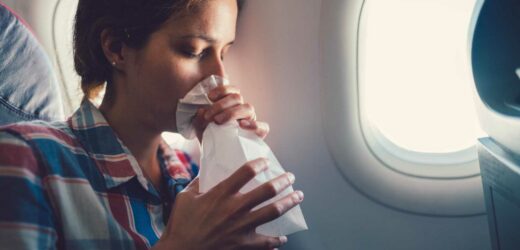HOLIDAYS can often be the downtime needed for relaxation, even during pregnancy.
However, with the expense involved in booking, many people worry if they will be allowed to travel when heavily pregnant.
Can you fly when pregnant?
Air travel is generally safe for expectant mums who are having an uncomplicated pregnancy.
Most experts agree that so long as it is a low-risk, it is safe for expectant mums to fly.
There is no evidence that increased radiation and changes in air pressure can cause miscarriage, early labour or the waters to break.
However, if a woman has been suffering problems during her pregnancy, experts say it might be better to avoid travelling by plane.
Should you pregnancy involve any issues outside of the norm, it is best advice to consult your GP before making any travel plans.
One of the most important things is to ensure that both you and your child are covered by your travel insurance.
When should you not fly when pregnant?
All airlines have their own policy when it comes to accepting pregnant passengers for travel.
However, most experts say that pregnant women should not fly after 36 weeks or 32 weeks if they are expecting twins.
After 28 weeks, most airlines require pregnant passengers to get a letter from your GP or midwife confirming your due date and that you are fit to fly.
In addition, many pregnant women chose not to fly in the first 12 weeks of pregnancy, when there is a higher risk of miscarriage and are likely to be suffering sickness and exhaustion.
What are the risks of flying while pregnant?
While experts do not believe flying adds any risks of complication to pregnant women, it is well worth speaking with your GP prior to taking any intended travel.
It is important to inform them of the length of the flight as this could be an important factor, depending on the situation of the individual.
Generally, it is regarded as safe for anyone before 36 weeks of the pregnancy to fly.
After this point, many medical professionals would advise against flying, plus some airlines may refuse to allow the individual onto the flight.
For this season alone it is well worth checking the situation with your operator.
There are measures you can take to ensure that your flight is not an uncomfortable one:
- Buckle up – During the flight, you should keep your seatbelt fastened, below the stomach.
- Hydrate – Drink plenty of fluids as low humidity on the flight can cause dehydration.
- Avoid certain food and drink – Gassy foods and drink are not advised as gases expand during the flight that can make you uncomfortable.
- Think ahead – Plan how you will get obstetric care while away and bring copies of any medical documentation that may be needed.
- Keep on moving – To prevent blood clots from such ailments as venous thrombosis, try to keep your legs moving during the flight.
While radiation on a flight is not thought to be a danger, should you be making multiple flights it is again advised to seek medical consultation.
Pilots, flight attendants and people who fly often are thought to be exposed to levels of radiation that may be a concern during pregnancy.
MOST READ IN PARENTING
Parents get utterly rinsed after choosing a bizarre name for their son
Mum shares clever Pampers tip which gets parents FREE nappies
The mums who called their babies Bambi like Molly-Mae reveal how others react
I hate gender stereotypes & let son have Minnie Mouse toys, says Jess Wright
Source: Read Full Article







